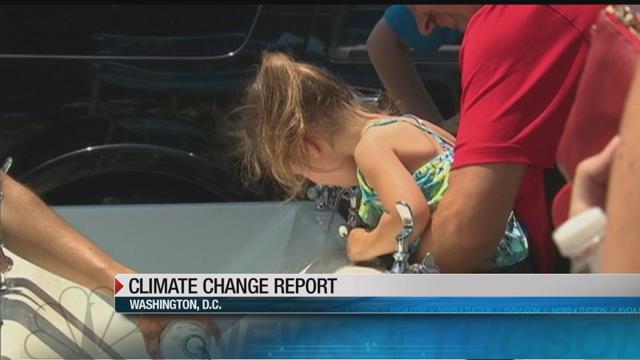-
Tips for becoming a good boxer - November 6, 2020
-
7 expert tips for making your hens night a memorable one - November 6, 2020
-
5 reasons to host your Christmas party on a cruise boat - November 6, 2020
-
What to do when you’re charged with a crime - November 6, 2020
-
Should you get one or multiple dogs? Here’s all you need to know - November 3, 2020
-
A Guide: How to Build Your Very Own Magic Mirror - February 14, 2019
-
Our Top Inspirational Baseball Stars - November 24, 2018
-
Five Tech Tools That Will Help You Turn Your Blog into a Business - November 24, 2018
-
How to Indulge on Vacation without Expanding Your Waist - November 9, 2018
-
5 Strategies for Businesses to Appeal to Today’s Increasingly Mobile-Crazed Customers - November 9, 2018
Heat wave could kill as many as 11000 people in 2030
Ozone-related health impacts, along with extreme heat, are likely to cause thousands of premature deaths, with one model projecting an additional 11,000 deaths to occur in the summer of 2030.
Advertisement
The wide-ranging effects of global warming on human health were the subject of an interagency report released Monday by the White House.
The study was developed over three years by the U.S. Global Change Research Program with input from the Environmental Protection Agency, the National Oceanic and Atmospheric Administration, the National Aeronautics and Space Administration, the U.S. Geological Survey, and the U.S. departments of Agriculture, Defense, Veterans Affairs, and Health and Human Services.
“Climate change is a significant threat to the health of the American people”, the report stated. By 2100, the report says, that number could rise as many as 27,000 premature deaths higher than the 1990 figure.
Air pollution and the increasing heat could increase the risk of allergy and asthma. An increase in extreme weather events attributable to climate change increases the risk of flooding that contributes to water-related illness, in addition to the harm of the weather event itself. A report issued Monday, April 4, 2016, by the Obama Administration listed how global warming will make the air dirtier, water more contaminated and food more tainted.
The report cites examples of Climate Impacts on Human Health.
The Tribes and Territories Initiative also will provide tribes with access to advisers from the Centers for Disease Control and Prevention to provide information on how to adapt to the effects of climate change on health.
The study found that the expected “climate value at risk” (climate VaR) of global financial assets today is 1.8% along a business-as-usual emissions path. Taking a representative estimate of global financial assets, this amounts to US$2.5 trillion.
“It broadens the story”, said Dietz, who is co-director of the Grantham Research Institute on Climate Change and the Environment at the London School of Economics and Political Science.
Reducing the health risks from climate change is a top priority for President Obama and will be a key benefit of implementing his Climate Action Plan. Climate scientists found that nations around the world that are at high risk of catastrophic impacts of climate change are among the poorest.
Bottom line, said Murthy, “If we want to safeguard the health of current and future generations, we have to address climate change”.
Advertisement
John Holdren, a science advisor to the Obama administration, highlighted the impacts of climate change on the health of outdoor workers. “We need to ramp up ambition over time to get deeper reductions if we’re to avoid the worst of the health care impacts that are described in this report”. There was no attempt made to identify which sectors could be most at risk, but the effects of global warming could lead to damaged buildings, bridges and roads from storms and floods, reduced agricultural activity and the enforced movement of populations. The study also illustrates that an increase in carbon dioxide in the atmosphere can undermine the nutritional value of crops, increasing carbohydrates and decreasing protein.




























